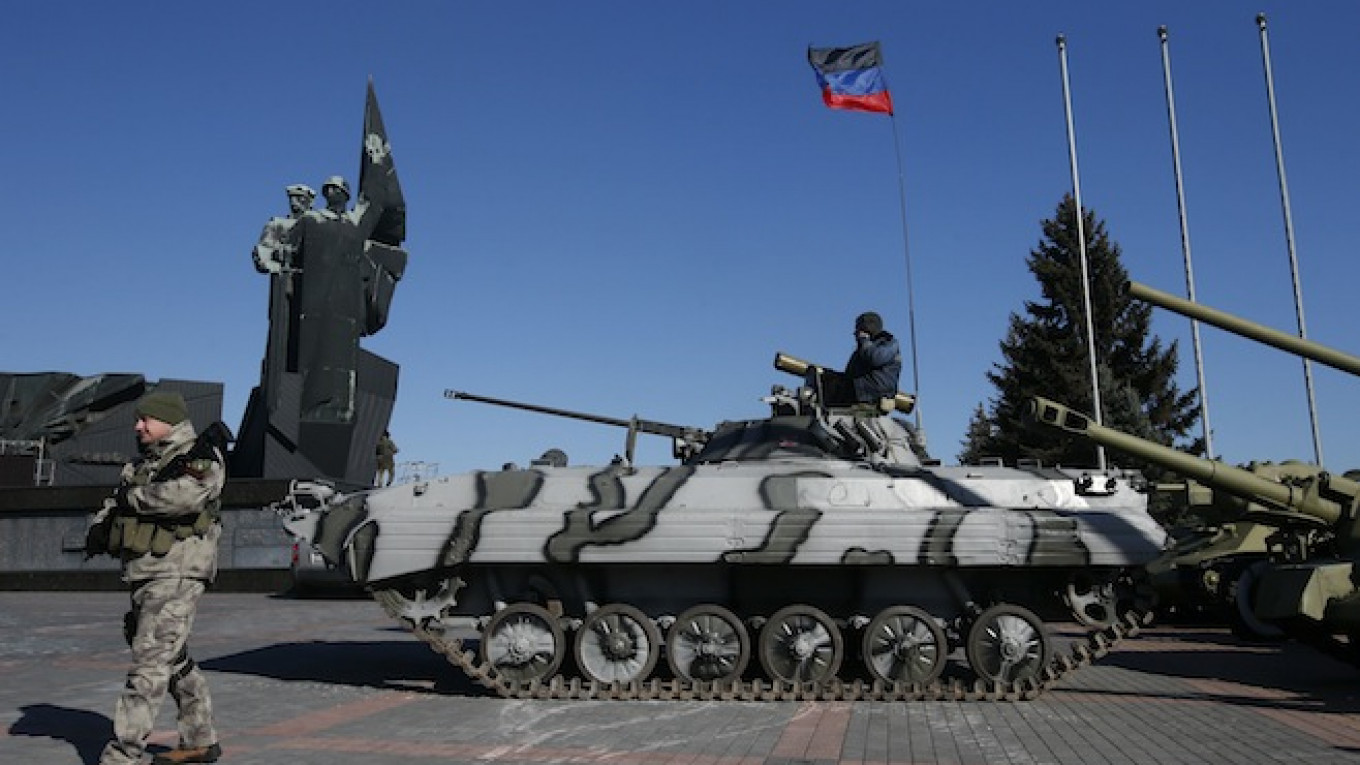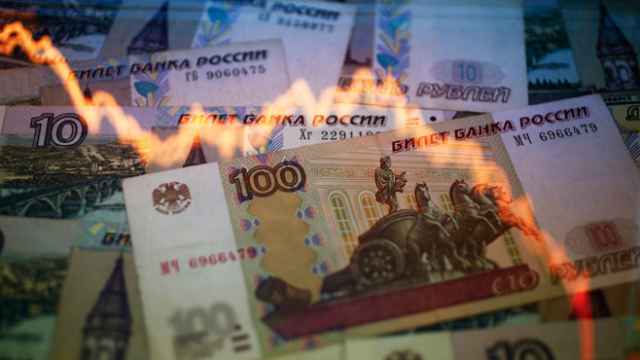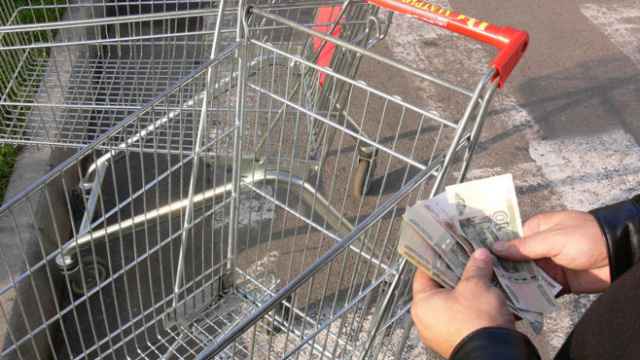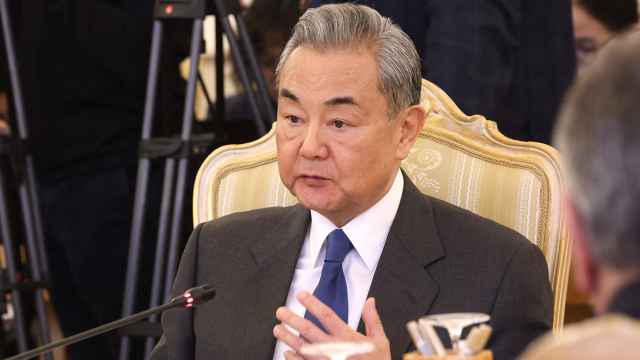A majority of Russians now believe that the annexation of Crimea and Russia's support for separatists in eastern Ukraine will lower their standard of living and cause an economic crisis in Russia, but even so they continue to back their government's actions, a survey published Tuesday found.
According to the survey by the Levada Center, an independent pollster, 61 percent of respondents anticipate an economic crisis and lower living standard, with 56 percent considering these the direct outcome of Russia's actions in Ukraine — up from 45 percent in a survey in July.
This heightened economic pessimism coincides with the ever more common experience of soaring prices, particularly on goods that were imported from the U.S. or EU before Russia in August banned select food imports from these countries in retaliation against Western sanctions.
The number of Russians who have noticed the price of embargoed goods rising has nearly doubled, climbing from 35 percent in a survey in August to 64 percent in October.
Supply chain disruptions resulting from the bans coupled with the rapid devaluation of the ruble have sent prices rocketing over recent months, with year-on-year inflation rising to 8 percent in September and 8.3 percent in October, according to data from state statistics agency Rosstat.
But Alexei Grazhdankin, deputy director of the Levada Center, told business daily Vedomosti that although Russians notice prices rising, they do not hold the food import bans responsible.
They place the blame for speeding inflation on the West — not on their government or President Vladimir Putin, whose actions they consider "sensible and appropriate in the context of sanctions against Russia," he said.
The majority of Russians still approve of the food bans, although support fell to 73 percent in the latest survey from a high of 78 percent in August.
According to another Levada Center survey published Monday, 86 percent of Russians still support the annexation of Crimea.
The Central Bank in a report published Monday predicted that inflation will stay high until the end of the first quarter of 2015 and then begin to fall as new trading partnerships take root. The bank said it expected both Western sanctions and Russia's food bans would stay in place until the end of 2017.
The Levada Center survey was conducted in late October and consulted 1630 people aged 18 or older living in 134 towns and cities across Russia. The margin of error did not exceed 3.4 percent.
Contact the author at d.damora@imedia.ru
A Message from The Moscow Times:
Dear readers,
We are facing unprecedented challenges. Russia's Prosecutor General's Office has designated The Moscow Times as an "undesirable" organization, criminalizing our work and putting our staff at risk of prosecution. This follows our earlier unjust labeling as a "foreign agent."
These actions are direct attempts to silence independent journalism in Russia. The authorities claim our work "discredits the decisions of the Russian leadership." We see things differently: we strive to provide accurate, unbiased reporting on Russia.
We, the journalists of The Moscow Times, refuse to be silenced. But to continue our work, we need your help.
Your support, no matter how small, makes a world of difference. If you can, please support us monthly starting from just $2. It's quick to set up, and every contribution makes a significant impact.
By supporting The Moscow Times, you're defending open, independent journalism in the face of repression. Thank you for standing with us.
Remind me later.






